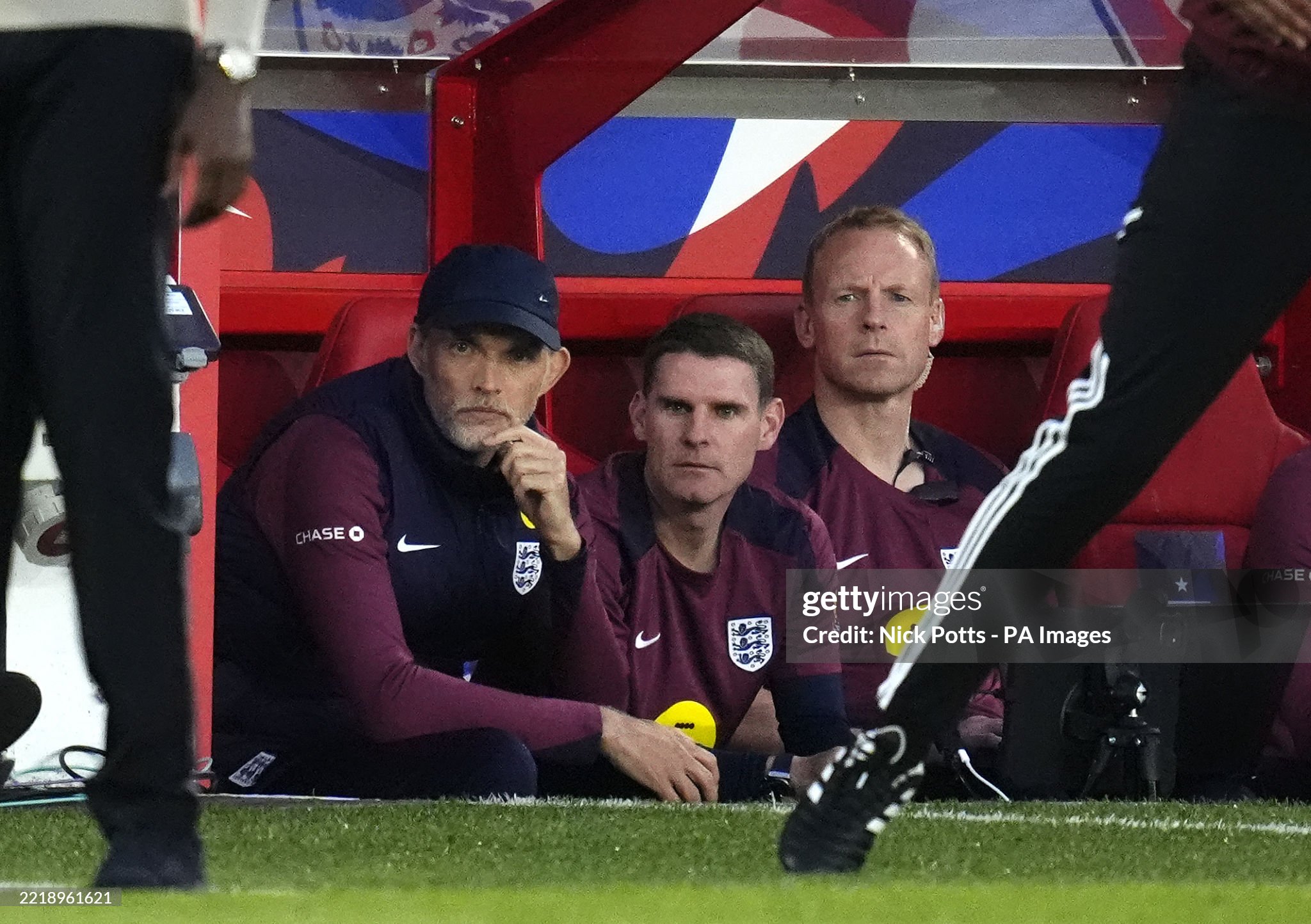Thomas Tuchel took the heat after England's 3-1 defeat in a friendly against Senegal. He became the first England manager ever to lose to an African team. The 51-year-old German has only been in charge for four matches, but the English media are already calling for his head.
 Embed from Getty Images
Embed from Getty Images
Thomas Tuchel's tenure as England manager is already hanging by a thread after just four matches in charge, following a humiliating 1-3 defeat to Senegal in a friendly at Wembley.
The result not only sparked outrage among fans and the media, but also marked a historic low point in England's football history Tuchel is now the first England manager to ever lose to an African nation. What was intended as a routine test match to build cohesion ahead of World Cup qualifiers has instead turned into a full-blown crisis for the Three Lions.
From the opening whistle, England appeared disjointed, lethargic, and tactically confused. Senegal, by contrast, played with aggression, clarity, and precision, dominating the first half and exposing every crack in England’s fragile structure. The defensive unit, in particular, looked overwhelmed and unprepared. Kyle Walker had one of his worst games in an England shirt, and young debutant Myles Lewis-Skelly seemed completely out of his depth, repeatedly targeted by Senegal’s pacey wingers. The midfield offered little support, failing to track runners or maintain possession, while the attacking line looked isolated and toothless. England's goal, which came late and against the run of play, was no consolation in a night defined by Senegal’s superiority.
The English media responded with fury and disbelief. The Guardian described the loss as “a sobering defeat,” stating that Tuchel had hoped to see signs of progress and cohesion, but instead found himself with a deepening frown and louder boos than ever from the home crowd. The paper highlighted that the team’s performance was not only worse than the underwhelming 1-0 win over Andorra just days earlier, but symptomatic of a wider malaise. “Senegal outclassed England in every department,” the article noted, “and the timid, hesitant atmosphere that surrounded the players was impossible to ignore.” Tuchel’s complaints about not having enough time to implement his ideas fell on deaf ears. In international football, results are expected immediately and patience is in short supply.
The Times echoed the harsh tone, calling the match “worse than Andorra” and “worse than England at Euro 2024,” where despite uninspiring play, the team at least managed to scrape through to the knockout rounds. Their headline, “England booed after grim defeat,” captured the national mood. The report mocked England’s tactical switch back to a 4-4-2, only for the side to descend into “blind panic and chaos” before the hour mark. The final goal from Senegal, a training-ground-style finish through a passive English defence, was described as “something you’d expect to see against mannequins.” The article suggested that while the Andorra game may have signaled the end of Tuchel’s honeymoon period, the loss to Senegal felt more like “the beginning of divorce proceedings.”
The Daily Mail didn’t hold back either. “England as World Cup winners sounds like a bad joke,” the outlet declared. While Tuchel insisted post-match that he could “handle the criticism,” the paper warned that the fallout from these four desperate days narrowly beating a minnow like Andorra and then getting dismantled by Senegal will follow him throughout the summer and likely beyond. The Mail slammed the defensive disorganisation and lack of leadership on the pitch, noting that England have “long forgotten how to control a football match.” Instead of building a team that functions as a cohesive unit, Tuchel has so far leaned on individual brilliance in key moments something the Mail argued is completely unsustainable at the highest level. “Senegal humiliated England at times,” the report said bluntly. “And for long stretches of the match, Tuchel’s side looked like they didn’t belong on the same field.”
The critique from The Telegraph went deeper, taking aim at Tuchel’s tactical approach or rather, the absence of one. “Tuchel’s England is a team without a tactical plan,” the piece began, warning that while many England managers have stumbled early in their reign, none have managed to look so directionless, so quickly. “The atmosphere has shifted with alarming speed,” the article continued, pointing out that there is no identifiable system in Tuchel’s play, particularly going forward. Constant changes in formation, erratic team selections, and a lack of defined roles have left players confused and ineffective. With the 2026 World Cup just a year away, the Telegraph questioned whether Tuchel is even capable of putting together a side capable of qualifying, let alone competing on the world stage.
Across fan forums and social media, the anger is palpable. Tuchel, once seen as a breath of fresh air after Gareth Southgate’s conservative tactics, is now viewed by some as a liability. There are growing calls for the FA to act before the World Cup campaign slips further into chaos. Some supporters are even asking whether the likes of Eddie Howe or Graham Potter should be considered if the German fails to turn things around quickly. Others point the finger at the players, questioning their mentality, fitness, and commitment.
What’s clear is that Tuchel is in danger of losing not just matches, but the confidence of a nation. England’s problems are no longer theoretical or transitional they’re visible, systemic, and urgent. With qualifiers looming and the World Cup drawing closer, the clock is ticking loudly for a manager who was supposed to bring tactical brilliance and tournament pedigree to a talented squad. So far, he has delivered neither. And as the boos at Wembley echoed into the night, it felt less like a bump in the road and more like the start of a full-blown collapse.
Updated: 11:03, 11 Jun 2025







